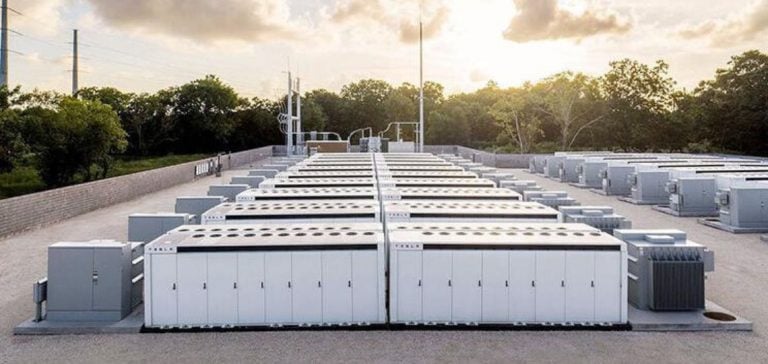The energy sector in the northwestern United States is facing increased pressure from rising demand for electricity, particularly in the areas served by Puget Sound Energy (PSE).
The Greenwater Battery Energy Storage System (BESS) project, with a capacity of 200 MW/800 MWh, is designed to meet these challenges by providing a reserve of energy that can be mobilized during periods of high demand or when renewable energy production fluctuates.
This project is part of a growing trend in which storage systems are playing a crucial role in balancing power grids.
As renewable production capacities increase, the question of energy storage becomes essential to guarantee grid stability.
Greenwater provides a direct response to this issue, enabling stored energy to be discharged as and when required, thus reinforcing security of supply throughout the area covered by PSE.
Cost and infrastructure optimization
Unlike traditional transmission infrastructures, which are often costly and time-consuming to deploy, the Greenwater project has the advantage of reducing the need for new transmission lines.
Located in Pierce County, close to centers of consumption, it limits investment in long transmission infrastructures, which are both costly and have an impact on the environment.
Storage systems like Greenwater are also more flexible and responsive.
By storing energy when it is produced in excess (notably from renewable sources such as solar and wind power), BESS can then redistribute this energy during consumption peaks, thus avoiding shortages and reducing dependence on non-renewable energy sources during these critical periods.
A project in line with regional objectives
The Greenwater project is in line with the regional objectives set by the Western Resource Adequacy Program (WRAP), whose aim is to guarantee a reliable and affordable energy supply in the Northwest region of the United States.
The flexibility provided by this storage system will contribute to the optimal management of renewable electricity production, facilitating the integration of intermittent energies into the grid while ensuring continuity of service.
In addition, compliance with the requirements of the Clean Energy Transformation Act (CETA) requires Puget Sound Energy to increase the share of renewable energies in its energy mix, while guaranteeing maximum reliability.
The Greenwater project meets these legal obligations by strengthening PSE’s ability to maintain continuous service, even in the most extreme conditions, such as intense heat waves or cold.
Economic impact and community benefits
Beyond the technical aspects, the Greenwater project also represents a significant economic gain for the region.
The implementation of this storage system will generate significant fiscal spin-offs, estimated at $43 million, which will directly benefit local infrastructures such as schools, emergency services and public transport.
The project also plans to support education by funding STEM (science, technology, engineering and mathematics) programs in local schools, a key element in strengthening the skills of younger generations in rapidly developing sectors such as renewable energies.
This support for education is seen as a strategic investment in the region’s future, helping to train tomorrow’s talent.
Long-term prospects and emerging business models
The Greenwater project is part of a series of initiatives aimed at strengthening the region’s energy independence, while paving the way for a business model in which energy storage will play a central role.
The multiplication of similar projects is essential to enable energy companies to better manage the intermittent production of renewable energies and guarantee reliable service in all seasons.
The returns on investment for Puget Sound Energy and its partners should be significant, both in terms of reduced operating costs and improved grid stability.
With increased storage capacity, the company will be able to better anticipate fluctuations in demand and avoid the penalties associated with service cuts or interruptions.
Greenwater’s success could also encourage the development of other storage projects in the region, thereby contributing to the energy transition and the achievement of decarbonization objectives.





















